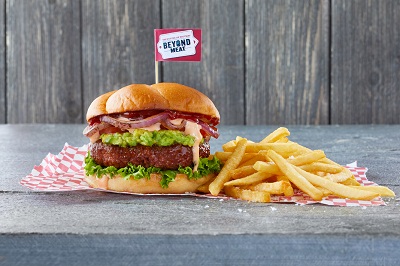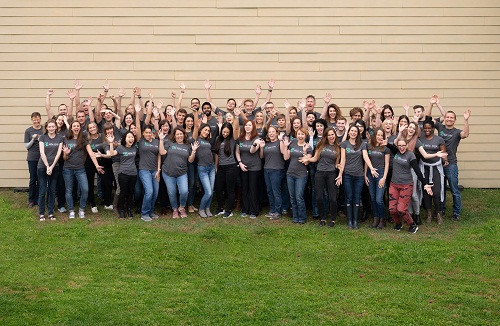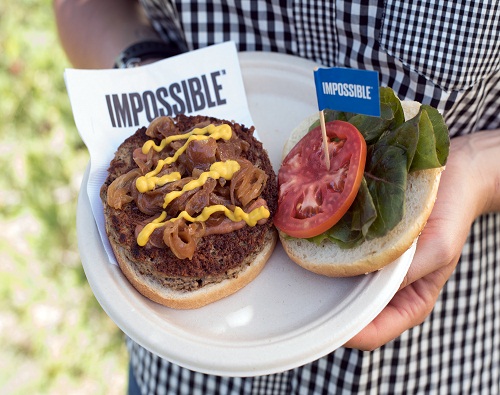How can we create better diets for our planet and our health?
The food world is abuzz with the release of a new report -“Our Food in the Anthropocene: Healthy Diets From Sustainable Food Systems,” developed by the Eat-Lancet commission. The commission, which brings together 37 scientists from 16 countries across areas of specialisations such as health, environmental sustainability, and agriculture aims to outline a “win-win” diet which works for the human health as well as the planet.
But this is not the first report to explore dietary guidelines that lessen the environmental impact of our food system- and our food system does have a significant impact. Among the largest drivers of environmental change is our food production. Our food is both affected by climate change and contributes to it. Land-use change, biodiversity loss, pollution of land and aquatic ecosystems and depletion of freshwater are all contributing factors. In 2010, the estimated amount of carbon dioxide in GHG emissions by the food system was roughly the equivalent of 5.2 billion tonnes- a fact I obtained from a similar report published in Nature in October 2018 -“Options for keeping the food system within environmental limits.” About 78% of
The fundamental message in all these studies is the same -” a diet rich in plant-based foods and with fewer animal source foods confers both improved health and environmental benefits.“

Image Courtesy: The Good Food Institute
It looks like consumers worldwide have already embraced this change. Companies that produce plant-based meat options have reported increased sales and awareness among consumers in recent years- health concerns being a significant reason for this preference. Entrepreneurs and innovators are playing a pivotal role in ensuring that these alternatives are close to the real deal.
In India, however, meat consumption is growing rapidly and switching to a diet that is rich in plant-based food is easier said than done. However, startups like Good Dot,
The Good Food Institute, a US-based non-profit that works with entrepreneurs, policymakers and scientists is providing such entrepreneurs

Image Courtesy: The Good Food Institute
TYT: What are your goals with The Good Food Institute -India?
VD: The Good Food Institute in the US focuses on various programme areas. This includes scientific advancement that promotes research and commercialisation of both plant-based and cell-based meat. We publish white papers, we work with scientists directly, we work with research institutes to identify priority projects, we unlock funding for research, and we also work with entrepreneurs. Good Dot in India is an example of a plant-based meat start-up that GFI has advised and supported.
We also work with venture capitalists to help them understand this sector, and with large corporations. We help them to invest in research and product development within this area, and to invest in the distribution of these products. We help Governments understand this sector and provide them with with technical support. So there are a lot of things we do. In India, we will focus on doing all of these things.
Along with alternative meat products, we are also looking at seafood, which is a crucial category when it comes to sustainability around the world. India already supplies a lot of the seafood in the world. So we see India as an important centre when it comes to creating plant-based seafood and cell-based seafood for the global market as well as the local market.
TYT: What exciting opportunities does India present in the area of developing clean and plant-based meat products?
VD: India presents a big opportunity to diversify the inputs that go into plant-based meat options. Right now, globally we are using soy, wheat, potato protein, pea protein- you can count the options on the fingers of both hands. India has the opportunity to completely diversify this and include crops like millets, other indigenous crops, and jackfruit- which is already a natural mimic of meat. There are great many value chains that are being built for these crops already, that we can plug into. The Government is investing in helping farmers grow these crops, and we can provide them with a lucrative end market. We can also create innovative new products that consumers will love all over the world. So I think that’s one area where India Is really well placed. When it comes to original research, as well as contract research and manufacturing- India can contribute to the food system of the future.
TYT: Plant-based innovation is entering India at a time when the demand for meat products is growing rapidly. Do you think this will make it more challenging for consumers to make that switch, or does it pave the way for more experimentation from their end?
VD: I think the challenge for plant-based products in the past was that they were poor substitutes for meat. They were generation zero products. We need to bring the standard up to generation one or generation two. As you said, there is a market pull for meat now. People are consuming it in much greater quantities. The idea here is to give people exactly what they want, so it is not a sacrifice but a simple switch. We are talking plant-based meat which satisfies all the sensory aspects that a consumer expects- whether it is the texture, smell or the taste of meat. That is the idea we are hoping to bring into the market place and have entrepreneurs create these products. So that consumers get the meat they want –just made differently.

Image Courtesy: The Good Food Institute
TYT: We are having this conversation at a time when there
VD: You have hit the nail on the head when you say that a lot of these things are happening in scientific silos. There are a few overwhelming attributes of food that drives consumer behaviour- price, taste, convenience and of course, there is health. Consumer advocacy is not a great way to encourage change on a large scale, to create a new food system. With respect to these reports- I completely agree that when it comes to a diet that is best for human health and planetary health, people need to be eating more plant-based foods, and less meat. Unfortunately, I don’t think that publishing more reports and carrying out consumer advocacy is going to cause the overall demand for meat to come down especially in the coming decades when countries like India are expected to drive the global rise in demand. We need to inherently meet that demand with less damaging products for human health, planetary health and for animals.
TYT: Why there is so much emphasis on making plant-based meat alternatives so close to the real product? Why is imitation given importance over replacement?
VD: People like meat and they want meat. We have to give them want they want with fewer negative externalities. The whole point of plant-based meat is that they are made to replicate the sensory experience and the nutritive experience of meat. People shouldn’t feel there is a shortfall. They should be able to satisfy all their experiences, and essentially it is just outcompeting the products of animal agriculture.
TYT: In the Guardian article, “The Trouble With Fake Meat,” British writer and journalist Bee Wilson writes that one of the concerns with respect to fake meat is that many consumers see it as “just another set of overly processed Industrial foods”. How will you address such concerns regarding plant-based/ clean meat products?
VD: Processing and additives are important concerns for some consumers, and they should be taken into account. There is a place within this movement for clean labelled products, and for products which have fewer ingredients. There are entrepreneurs out there who know these consumer concerns and create products accordingly. It’s essential that we provide choices to consumers. Products should be available across price range, and in the form that consumers want. People should have the option of buying millet based meat or a jackfruit based meat which is just as tasty and just as nutritious. Similarly, if they want something that is less processed, there should be an option out there which caters to this. The concern is a valid one, and it is a concern across the world of food for some consumers.
TYT: What kind of support do entrepreneurs and innovators need to create such market disrupting products?
VD: Entrepreneurs will definitely need scientific support. They will need the support of a talent pool which we are building from the ground up in India. India does have great institutes of learning and a good understanding of Food Tech and Food Science- which we are hoping to leverage and build upon. There is a growing venture capital ecosystem here, and we will be working with angel investors and venture capitalists to educate them about this area. Of course, we will be creating reports and providing direct advisement to entrepreneurs to understand the various products that are out there, and what they need to do in order to create tasty and nutritious food products.
TYT: What are your expectations from innovators in India working in the area of plant-based meat alternatives?
VD: I think I am very excited about entrepreneurs bringing out products which cater to Indian tastes and consumer preferences. As consumers start eating more and more different plant-based options, we are going to see entrepreneurs come forward with various products that aren’t the same as the products we see in the West. In India it may not be an Impossible Burger or a Beyond Burger which will dominate- it will be something else, particularly catering to the Indian clientele. That is something which is very exciting for me. When it comes to the international market, Indian entrepreneurs have a real opportunity to drive down the cost and drive up the possibilities for international products as well. Whether it is by providing different ingredients to the international market or providing different products that even they haven’t seen before, we are hoping entrepreneurs come up with such exciting products.
For more information visit The Good Food Institute.
All Images Courtesy: GFI – India
Featured Image: Impossible Burger at the Good Food Conference
This conversation has been edited for length.
